A Bank for International Settlements study says 60+ trillion dollars of off-the-books currency swaps could be a profound, systematic risk. Robert Johnson joins Paul Jay on theAnalysis.news.
Paul Jay
Hi, I’m Paul Jay. Welcome to theAnalysis.news. In a few seconds, I’ll be back with Rob Johnson to talk about a ticking time bomb in the global financial system. Be back in just a few seconds. Please don’t forget the donate button at the top of the website, and subscribe on YouTube. Most importantly, come to the website and get on our email list, and I’ll be back, as I said.
I hate to be the bearer of more bad news, but there’s a story that appeared in the Business Press but received almost no attention in mass media. I think capitalism is in chaos and is out of solutions. If the climate crisis wasn’t enough to convince you, here’s another example.
Bloomberg reports, “there’s a hidden risk deep inside the global financial system, embedded within $65 trillion of “dollar debt” held by non-U.S. institutions via currency derivatives, according to the Bank of International Settlements.” Okay, if you don’t know what all that means, we’re going to get into that soon. Just know all this could affect our lives in dire ways.
Now, back to Bloomberg. “Banks headquartered outside the U.S. carry $39 trillion of this debt— more than double their on-balance sheet obligations and ten times their capital. Shadow banks— otherwise known as non-bank financial intermediaries— have increased their dollar swap and forward liabilities to $26 trillion, which is twice the size of their on-balance-sheet debts.”
I’m going to take a crack at interpreting this. Dollar swaps are when– say, a non-U.S. pension fund, corporation, or bank needs to do a transaction in U.S. dollars but holds Euros; they agree to do a currency swap with a partner who holds U.S. dollars and wants Euros. These can be of enormous size– hundreds of millions of dollars, sometimes swapping overnight or in just a matter of a few days, but it can also be longer. Sounds reasonable. But wait a minute. Now we’re going back to Bloomberg again.
“Non-US banks have almost $40 trillion of hidden dollar liabilities from FX swaps and forwards, nearly three-times their recorded dollar debt. Accounting conventions only require derivatives to be booked on a net basis, so the full extent of the cash involved isn’t recorded on a balance sheet. This is what’s keeping the BIS up at night.”
Reuters reports, “the $80 trillion-plus hidden debt…” that’s even more than Bloomberg said, “… $80 trillion-plus [“hidden”] debt estimate exceeds the stocks of dollar Treasury bills, repo and commercial paper combined, the BIS said.” Again, what does all this financial gobbledygook mean? Well, in short, there could be a ticking time bomb in the global financial system that could trigger a crash, something similar to 2007 and 2008. That means millions of people around the world are falling further into despair, losing homes and losing jobs– a devastating effect for all of us ordinary folk who have little to no knowledge of what’s going on in the financial sector.
Now, joining us to make sense of all this is Rob Johnson. Rob is the President of the Institute for New Economic Thinking [INET]. In his multi-faceted life and career, he was, at one point, Chief Economist of the Senate Banking Committee at the time of the ’87 stock market crash in the savings and loan crisis. He is also known as the man who helped George Soros [Hungarian-American businessman and philanthropist] and Stanley Druckenmiller [American investor] break the bank of England; that’s a whole other story– you can look it up. He now fights for the regulation of the financial system, as Rob says,” in ways to have the financial sector generate economic growth, balance and limit predatory value extraction,” which ain’t happening much now. Alright, thanks for joining me, Rob.
Robert Johnson
Yes, it’s my pleasure. This is, how would I say, an important and treacherous domain that you want to explore.
Paul Jay
So, Rob, all this stuff is so complex that people not involved, and I suspect a lot of this complexity is deliberate, so people not involved don’t understand it. If it wasn’t for a few articles in the Financial Press, nobody would even know of this BIS report. How dangerous is this warning?
Robert Johnson
Well, a number of things come to mind. First of all, I want to encourage people to get better acquainted with the Bank for International Settlements. The various people there, Bob McCauley, Hyun Shin, and others, are at a multilateral institution in a time of globalization, and they are studying the fault lines and flaws in the system. Whether it be in the old days, how the Asian companies all borrowed dollars and then brought the money into renminbis so they could have a U.S.-China crisis, as they had in 2015, or what we might call swaps and forwards mismatch, they’re talking about now. They look for the vulnerable, the weak links, or the fault lines in the system.
Paul Jay
How dangerous is this warning?
Robert Johnson
Well, I think the scale that we’re talking about, the $39 trillion, etc. tells you that if something slips, like if you step on the banana peel– what they talk about in their report is the central banks will then all have to come in and open the spigots. In other words, if there’s a dollar shortage and it creates a frenzy, they’re going to have to supply the dollars to put out the fire. What that comes down to is what I have referred to in the work I’ve done on finance as the ‘mother of all moral hazards’. If you know the central bank can see the big institutions creating something that’s dangerous for the whole world, the central bank has no choice– what we might call an organ of public policy– but to try to put out the fire. But if you know they’ll put out the fire, you may take more risk knowing you’re going to get underpinned. What we need is a system where they’re there to rescue, but they also have the capacity to evaluate these institutions, have proper reporting of their positions, and which you might call impose prior restraint.
Paul Jay
Okay, just for a second before we get further into this, just so people understand the dynamic here– if a Japanese company wants, I don’t know, Canadian dollars, say, some other company, bank, financial institution, or pension fund has Canadian dollars but wants yen, and they can do a swap. Eventually, they will resolve this swap, and this money doesn’t go on the balance sheet until the whole transaction is completed. At any rate, it all sounds relatively benign. Why is it dangerous?
Robert Johnson
Well, if you’re saying all of these institutions are fine in terms of their balance sheet, integrity, and so forth, and they’ve made a deal to go from dollars into yen, and 30 days from now, come back out, the difference between the price today and the price 30 days from now depends upon the interest you’d earn– what they call interest rate arbitrage.
Let’s say the U.S. has a 3% interest rate and another country, say Italy, has a 6% interest rate, so if you borrow dollars and then invest in Italian lira, you’re going to borrow at 3% and earn at 6%. Then when you close it out, there is an anticipation in what’s called covered interest parity– these are technical terms. If the Italian lira is going to pay you 3%, let’s just say over a year, if they’re going to pay you 3% over a year more than what you borrow for dollars, the exchange rate is going to depreciate by 3%, meaning the dollar lira currency rate, and so that the net, it’s an even deal. You can either be in dollars and earn 3%, or you can be in lira and earn 6% with a 3% depreciation. If that’s all a closed system, and there’s no solvency risk on either side, and everybody honors the contract, then it’s fine.
Now we move to some of the peculiarities. For instance, not every country and not every country’s borrowers are as high integrity as others. So a country like Germany or a country like the United States or Switzerland might have a more solid financial system than some of emerging Asia, Latin America, or other places. When you engage in these contracts, if the borrowers who are borrowing dollars and are supposed to repay start to have a fear of default risk over that one-year horizon that I used hypothetically, it could be three months or one month, then they may not come back and repay and retire the debt. In other words, the hole that’s created by the fear of bankruptcy or insolvency of institutions is what you might call a void that must be filled to protect the quality of credit. If these are small numbers and short-term things, they don’t tend to be as dangerous. If everybody is considered properly monitored and regulated, and all of the financial institutions that are engaged have enough capital set aside, which you might call a safety buffer, then everything can balance out. If it’s all done on a small scale, it doesn’t have systemic effects. But when you have tens of trillions of dollars spread across a world system that has very different qualities of regulation and integrity of financial institutions, the BIS is warning us that if something collapses in one place or another, the ability to honor the roundtrip contract will be suspect, which will lead to speculation on it blowing up, which will exacerbate the blow-up. In other words, some smart people will see, say, on a Ukraine crisis where a country that’s very dependent upon oil, their balance of payments will deteriorate, and then can they finance things, etc. In other words, financial speculators are smart, and when there’s a fault line, if it’s getting bigger, they put more pressure on it.
Paul Jay
So it can become, like, in the midst of a moment of crisis that might even be triggered by something else, like what happened in ’07 and ’08, subprime or something like the fall of Lehman Brothers, one crisis can trigger the other. This gets triggered, and because it’s on such an enormous scale, there’s no way to evaluate just how risky it is because we actually don’t have a handle on how much off the books there is.
I think one document, maybe it was the BIS report, said the amount of outstanding off-the-book debt and the debt on the books; if you combine it all, it is like equal to the whole global GDP. The numbers are staggering.
Robert Johnson
Yeah, let me take you back in history a little bit. Enron appeared to be a very successful corporation, and they created things off the balance sheet called special purpose vehicles. They did a lot of their transactions there, in what you might call hid their losses there, so their holding company looked like it was very profitable, and their stock looked like a good investment. But when those off-balance sheets, special purpose vehicles, were revealed, then the whole picture changed, suddenly.
In the 2008-2010 crisis, what they call the Great Financial Crisis, many of the big bank holding companies had lots of special purpose vehicles, which had big holdings of derivatives in other countries and other places that were not disclosed to the regulators. So let’s talk about it. If you allow structures where people can hide their position, you’re creating the potential for danger. If you don’t allow regulators to impose what I’ll call capital requirements on each position you take, then the system is more fragile and more risky. The first thing you need is proper disclosure of what positions you have. The second thing you need is an understanding that the regulatory authorities can put that safety cushion requirement on you while you go out and play in the private markets.
What the BIS is alluding to here is we’ve got undisclosed and hidden positions, potentially on a very high scale, and we have not got uniform global regulations. This is what I will call the examination, the scrutiny, the enforcement, and the requirements of capital are not uniform. Then obviously, the world can have events that economists refer to as shocking the system, which suddenly changes the perspective. Then people go into a bit of a frightened frenzy because if they don’t know what positions their counterparties really have, they get scared, become more cautious, everybody runs to safety, and it widens these fault lines and leads to what you might call the propagation of fear and the propagation of damage. That’s what draws the central banks and finance ministries in to bail out these guys, and like the 2008 crisis in the United States, as Joe Stiglitz once famously said, “the polluters got paid.” Then you go through a crisis where the people who were reckless are the people we’re using our public funds to support, and we’re not building healthcare systems, we’re not building education systems. We’re using our fiscal capacity to subsidize gamblers, and the demoralization is fierce.
Steve Bannon once said, “if it hadn’t been for those bailouts in the Great Financial Crisis..,” his father was hurt by that. He was a linesman for, I believe, AT&T. Bannon said, “when his father lost his pension, all kinds of people became so despondent about the governance of America that it’s what led to the Tea Party, Occupy Wall Street, a Republican House, Republican Senat’:e, and his guy Donald Trump becoming the President of the United States.” A repeat performance like that right now would be even more dangerous, given the skepticism about expertise and elites that we all face. This is a very, very dangerous environment, which you might call an environment of skepticism about whether governance is working for the people or not. The authoritarian alternative is not an attractive one.
Paul Jay
So if I understand this whole process correctly, if a Canadian bank is, say, trading dollars for yen with a Japanese bank, they actually have to go through the U.S. dollar before they complete the trade because of the U.S. dollar’s dominating role, and it’s the reserve currency. In the final analysis, all of this architecture, all roads lead through the U.S. financial system, so it’s really up to the U.S. regulatory authorities to deal with this. It seems like they’re not. Well, that’s the hub for all this. I assume Congress is really the one that is supposedly passing regulatory legislation, but they haven’t even taken on their own banks, never mind all this global financial activity in any serious regulatory way.
Robert Johnson
Well, I want to qualify it just a little bit. We have a parable that was once called the Treaty of Westphalia, which is about how a nation-state is structured and who’s responsible. We now have what we call globalization; what you might call the domain of the sovereign is much smaller than the scope of the marketplace in which people act. The dollar is used not just for the American economy; it’s used in transactions between, say, Korea and China or between Canada and Europe. You referred to an intermediate step because everybody goes into dollars and then out to the next thing. If they get through some surprise or shock called the place, they can retire, and their exposure is back into dollars. There’s not a big, what I’ll call a cross-currency market between the Canadian dollar and the Spanish peseta. But what are you going to do? You’re going to basically, maybe peseta into euro, euro into dollars, and dollars into Canadian dollars, because every one of those pairs has more liquidity and breadth of market depth than the straight across from the Spanish currency, which they largely use the euro now. I probably would have made a better example if I said something like the Brazilian currency would come through dollars or an Asian currency would come– how would I say?
There have been some initiatives. There’s a famous initiative called the Chiang Mai Initiative where the Chinese were reflecting a desire not to have everything triangle through the dollar. They could do things between the renminbi and the, say, Malaysian ringgit or Thai baht, and they would have an Asian system like there was an entry European system before the euro where the Deutschemark and French francs and all things worked in a coherent system. We’re in a place right now where in addition to it not just being America and America’s responsibility, there are dollar things going on between governments over which the American people and the American government have no authority. What we’ve tried to create in Bretton Woods, World Bank, IMF, and other things are what you might call multilateral institutions, which at least create cooperation and collaboration and minimize these dangers from what you might call reckless things that use the currency from a country that’s not really involved in the transaction. The scale of what you’re seeing is now huge.
Paul Jay
So what should the regulations be, and who should be regulating this? Is it the Fed? Is it Congress? If it’s Congress, well, forget about it because Congress, especially this Congress coming, isn’t going to do much banking regulation.
Robert Johnson
What I would say is that leadership in the world financial system should probably be what you might call taken to the table of the G-20. When these fault lines, these potential dangerous– I’m not saying existing positions are dangerous. I’m saying when you have a systemic recognition, like the Bank for International Settlements, the BIS Report, they should take that to the head table of the G-20 and say, “how are we going to work this out? This doesn’t look healthy.” It looks like the remnants of playing nation-state games with welcome to wild and woolly offshore games from globalization, and we don’t have a coherent monetary system. If it does break down, the consequences will flow back into all these nations. There’s, how you say, a collective danger from playing in all these little pockets that have side effects that are not being what you might call put on the head table. That’s why I think the BIS warning is an excellent one. It’s saying this isn’t some little funny thing going on at a Las Vegas hotel. This is trillions of dollars in a world system with hedge funds, insurance companies, and pension funds are all involved. The wealth and the well-being of citizens in many parts of the world can be damaged severely if we don’t make this system coherent.
Paul Jay
Well, given the tension now between the two biggest economies in the world, U.S. and China, what are the chances of that getting negotiated? Shouldn’t the U.S. just unilaterally regulate all this, given it’s the U.S. that manages global finance?
Robert Johnson
Well, I guess if the United States benefits from being a world reserve currency, in other words, the United States, for a long time, has been running big deficits and funding them with people holding U.S. dollar-denominated government bonds. That was what you might call one of the privileges associated with a U.S. bond; a government bond which is called a store of value, which will be properly managed, properly regulated, etc., in its home country. So if you’re sitting in Korea and you got extra money, where’s the place you can put the money where you know when you need it, you can get it back, and nobody’s going to have done craziness or monkey business with it.
So there is competition among the reserve currency countries for which you might call transparency, liquidity, and integrity of the system that makes holding that store of value much more attractive. Now we’re in a place where people can play with the American currency offshore, and the United States can’t stop them. On the other hand, they don’t necessarily want them to go be in the renminbi, Russian rubles, or whatever. I think the United States and Europe have had an amicable interaction where the euro, the dollar, and for that matter, the Japanese yen, have worked well in a trilateral system. I don’t think what will very shortly, if not already, be the largest economy in the world, which is China; they do not have a convertible exchange rate or enough experience with the supervision, regulation, and integrity of financial regulation to qualify as a reserve currency for international purposes.
Paul Jay
Not yet, but aren’t we getting into a period where people don’t trust the United States to play that global management role? Everyone has acknowledged the U.S. benefits from it. Everybody acknowledges the U.S. benefits from being the reserve currency, but they go along with it because the U.S. does manage this system. In times of crisis, the Fed does put lots of liquidity into the system and not just to American banks. In ’07-’08, the Fed put money into European banks, even non-American corporations.
Robert Johnson
Well, I think there are concerns of that sort, and there’s also this kind of anxiety that– how would I say this? The United States is being induced to unlock and let the cash flow out of the central bank and build bubbles. Some of the pain that we’re going through right now is that in the time of the Ukraine war, the U.S.-China breakdown, and so forth, the momentum of good news was off. All of those induced the opening of the spigot by the United States to keep the system coherent on the up ramp going back to 2006, and now, which you might call the bear market in housing and stocks is creating pain.
You could say, “well, why didn’t the Federal Reserve– Governor [Colin] Powell and his team are acting very hawkish, and we’re going to keep raising rates.” A lot of people are saying, “well, the labor share of GDP is nothing like it was when Paul Volcker [Former Chair of the Federal Reserve of the United States] was putting the hammer down.” Yes, you have an oil shock from Ukraine like in the ’70s, you had an oil shock from OPEC, but you’re now crushing the people who’ve been struggling, which you might say the sophisticated billionaires got off the train and dumped the Nasdaq.
In other words, why don’t we have a more gentle growth of the economy corresponding to its growth of the stock market’s value as opposed to this whipsaw that goes up and down based on floods of liquidity and then, oh my god, inflation and trashing of it? We’re creating a system that has induced extreme volatility. When you have induced extreme volatility, sophisticated people who can pay lots of money to hire financiers can get out of harm’s way and watch everybody else get trashed. What we’ve seen with the tremendous intensification of the concentrations of wealth in the United States and around the world is that the strong get stronger by maybe even being short in the stock market while the broad population gets compressed and compressed or goes through the ups and downs of volatility. It’s creating a further sense of injustice, not a re-equilibration or balancing of society as it’s structured now.
Paul Jay
Why would anyone trust the U.S. anymore and be willing to accept that deal? Yeah, you manage the system. We’ll help subsidize you, including subsidizing all your damn military expenditure, even your juicing of the American stock market. Let’s not forget, when it comes to volatility, it’s not that the rich just get out of the way of the consequences of most of that volatility. They know how to make even more riches out of volatility.
Robert Johnson
Yeah, I would say there are people who are professional in the realm of what I’ll call a two-way street in the markets, and they got to surf a big wave up from 2010 to essentially the end of the pandemic, but we’re now back in choppy water. Part of the reason that boom went up so big and for so long was that a U.S. central bank kept trying to calm the waters and kept having to open the spigot every time there was distress in a dollar-denominated world system. The shocks may emanate from other places in the world. There’s a problem in Iowa or Texas, and we’re dealing with that. There may be a problem in the Middle East, Russia, or Southeast Asia, and it leads to violent transactions in dollar-denominated things like swaps or what have you, and the central bank has to come in and calm the waters in the United States because it’s the reserve currency. Or what they do is they often give allocations to the other central banks to go administer their local regions, where they’re more knowledgeable about the specific firms immersed in the stress of the crisis. But nonetheless, the flood of dollars and then the drying up of dollars is related to the U.S. being at the center of that world system.
Paul Jay
Given the scale of this off-the-books jeopardy and other forms of derivative plays, which are also even bigger than the global GDP, is there a growing lack of confidence in the system? We saw in ’07-’08 the big banks wouldn’t even loan to each other because they didn’t believe each other’s balance sheets because they knew how phony their balance sheet was. They assumed the other banks, and correctly assumed, their balance sheets were full of BS too. So is there enough capacity in the central banks to calm the waters? Does it get to a scale where there’s a meltdown of proportions we’ve never seen before?
Robert Johnson
I want to take it a little bit out of just the central bank because in securities markets, you have things like the Securities and Exchange Commission Gary Gensler runs, or the place he used to run, Commodities Futures Trading, CFTC. I talked about providing liquidity, but I also talked about the examination, setting standards for capital cushions, safety standards, and so forth. Some of the other regulatory apparatus plays a role there.
There’s a very brilliant scholar at the University of Maryland who I’ve done a lot of work with over the years, Michael Greenberger, and he was at the CFTC when Gary Gensler ran it. He engaged in proactive studies that really are worth looking at right now about the reporting of derivatives positions. There’s a very interesting story that underpins this. Let’s say London, Frankfurt, and New York are competing to be the world financial center’s hub. When they’re competing, they want more activity in their domain. By the way, people who invest in or own urban real estate in cities where high-powered finance takes place tend to benefit. So there’s a lot of collective social pressure to create an attractive environment for financiers so that your financial center attracts more activity, more people, and the rising tide raises all boats in your region.
Now, why am I bringing this up? Because when you force people to disclose all their derivatives and maybe take a haircut for a little safety cushion, you’re creating a disincentive. So there’s a competition in laxity between the different centers around the world, and Michael Greenberger has shown how the non-reporting of derivatives is not a coincidence or just an intellectual error. It’s part of a system of understanding that laxity may attract things that you want in your domain, perhaps to the detriment of the long-term integrity of the financial system. There needs to be, if you will, a level playing field on a global basis about the way derivatives are reported and how much cushion is set aside so that it’s not a place where you can gain an edge for your financial hub, say, New York relative to London, Frankfurt, Paris, Hong Kong, Tokyo, and Shanghai. Those incentives play a big role in what you might call refuting the desire for systemic integrity.
Paul Jay
I know. I interviewed Greenberger a couple of times a few years ago. He was saying that the Commodity Future Trading Exchange, you know, they knew what needed to be done, and it wasn’t for lack of policy. They just couldn’t get enough people to staff the place, even in their own agency. Congress wasn’t funding them properly. You couldn’t get legislation passed that was actually effective regulation. It’s probably even worse now, which raises a fundamental systemic question. Is this model of capitalism even possible of creating a regulatory environment with some rationality? Because this concentration of economic power in the financial sector has given them such enormous political power. Who in Congress wants to take on the financial sector?
Robert Johnson
Right. To use Wall Street as a parable, but you could say London, or you could say Frankfurt; when you have a very high proportion of income and wealth, and there are many scholars who’ve now studied this in its relation to the distribution of income and wealth, the big donors can influence who gets appointed, what kind of laws and regulations are considered, how strong is the enforcement of existing laws and regulations. If you don’t like to have something enforced, you can start to tell congressmen and senators or the White House, using the United States as the example, we’re not going to hold fundraisers for you guys now, or maybe we’ll hold them for the other team that says we don’t need those things. They know how to stop strong enforcement of existing laws, they know how to stop new laws, they know how to repeal laws, and they know how to elect people or get people appointed who see things in a way that’s advantageous for their wallets.
Paul Jay
There are people who run for office who aren’t beholden to Wall Street and actually do want some real financial regulation, but their own leadership, the leadership of the Democratic Party, doesn’t want these people to get elected and actively fights against them in primaries. But is that what we people need to do? Educate ourselves about some of these issues and then try to find candidates who are actually for some kind of action on this and organize and make this a demand in terms of developing and organizing a mass movement. The financial sector got a lot of attention in ’07-’08, but right now, they seem to just be getting off scot-free.
Robert Johnson
Yeah, I’m going to be a little bit fantasy-like for a moment. What we really need to do is collectively know that we have to reduce the role of money relative to the poles in our political system in order to take care of our population. What I mean by this is if you have public financing of elections, you could probably have smaller budget deficits because a lot of the stuff is [inaudible 00:39:21]. It’s done to induce campaign contributions. [inaudible 00:39:26] the population is going to put its tax money into public funding for elections, but you can’t [inaudible 00:39:37] donations. The [inaudible 00:39:38] might go down, and the deficit might be smaller, but the moment would be used. Secondly, you’ve got communication companies: radio, television, cable television, etc., they make a lot of money covering elections every two years in the United States. What if we said in order to get a charter, to be a communications company in America, you have to allocate public service announcements with time and not get paid for it by people who are selling [inaudible 00:40:00] for cheap? In other words, there is a public service where the candidates get to speak, but they don’t have to pay for it like it’s advertising.
Paul Jay
There used to be legislation like that about equal opportunity in television during election campaigns, but I think it was Reagan who got rid of that.
Robert Johnson
I think, certainly, in the period from Richard Nixon on, it has disintegrated. I don’t follow the intimate history, but if you said to run for office, I don’t need to raise that much money; no one can raise that much money and use it, the public is paying for the budget, and it doesn’t cost so much to reach people and market it, then the value of voters goes up, and the value of money goes down.
Now, here’s the problem. How do you go to existing legislators and say you got to pass that because what they’re doing is, as incumbents, they’re preserving an advantage vis à vis challengers because they can sell policy and challengers can’t? So it might be a good idea, but I don’t know how that fantasy idea can be implemented. The idea of reducing the value of money might improve what you might call the vision of how to regulate a financial system or enforce antitrust or figure out how to work with these big communication monopolies that the digital age has spawned. There are all kinds of things where concentrated money shouldn’t be regulating itself. The systems are for the public as a whole, and if you allow money politics to play a big role, they won’t be designed or implemented for the broad well-being.
Paul Jay
Thanks a lot, Rob.
Robert Johnson
Thank you.
Paul Jay
Thanks, everybody, for joining us on theAnalysis.news. Please don’t forget the donate button on our website. There’s a link to it on YouTube. It’s the end of the year, and it practically is the end of the year; in fact, by the time you see this, we might already be in the next year. At any rate, in case you don’t know it, we are a 501 (c)(3) nonprofit in the U.S., which means if you donate to us, you get some kind of tax deduction. If you’re not in the U.S., we hope you’ll donate anyway. Thanks to everybody who’s been supporting us all through 2022 and before that. Bye-bye from everybody and best wishes, as we’re going to need them in 2023.
Paul Jay
Hola, soy Paul Jay. Bienvenido a the.Analysis.news.
En unos segundos, volveré con Rob Johnson para hablar sobre una bomba de relojería en el sistema financiero global.
Vuelvo dentro de unos segundos.
No olvide el botón de donar en la parte superior del sitio web y suscríbase en YouTube. Lo más importante, visite el sitio web e inscríbase en nuestra lista de correo electrónico.
Odio ser el portador de más malas noticias, pero hay una noticia que apareció en la prensa financiera pero que casi no recibió atención en los medios de comunicación.
Creo que el capitalismo está en caos y no tiene soluciones. Si la crisis climática no es suficiente para convencerlo, aquí tiene otro ejemplo.
Bloomberg informa: “Hay un riesgo oculto en lo más profundo del sistema financiero global, como parte de los 65 billones de la deuda en dólares mantenida por instituciones fuera de los EE. UU. en forma de derivados de divisas, según el Banco de Pagos Internacionales”.
Bien, si no sabe lo que significa todo eso, vamos a analizarlo ahora. Solo sé que todo esto podría afectar nuestras vidas de manera nefasta.
Volvamos a Bloomberg. “Los bancos con sede fuera de los EE. UU. poseen 39 billones de dólares de esta deuda, más del doble de sus obligaciones no reflejadas en el balance general y diez veces su capital. Los bancos en la sombra, también conocidos como intermediarios financieros no bancarios, han aumentado sus permutas de divisas [swaps] y pasivos a plazo en dólares a 26 billones, lo que supone el doble de su deuda en el balance general”.
Voy a intentar interpretar esto. Las permutas de dólares son cuando, por ejemplo, un fondo de pensiones, una corporación o un banco no estadounidense necesita hacer una transacción en dólares estadounidenses pero tiene euros, y acuerda hacer un intercambio de divisas con un socio que tiene dólares estadounidenses y quiere euros. Estos pueden ser de un tamaño enorme, cientos de millones de dólares, a veces de un día para otro o en unos pocos días, pero también puede ser más largo.
Parece razonable. Pero hay más.
Volvamos a Bloomberg. “Los bancos fuera de los EE. UU. tienen casi 40 billones de dólares en pasivos ocultos en dólares de permuta de divisas y pasivos a plazo en FX [cambio de divisas], casi tres veces su deuda registrada en dólares. Las convenciones de contabilidad solo requieren que los derivados se registren en forma neta, por lo tanto, el monto total no se registra en la hoja de balance. Esto es lo que tiene en vilo al BPI”.
Reuters informa: “La deuda oculta de más de 80 billones de dólares”, eso es incluso más de lo que dijo Bloomberg. “La estimación de deuda [“oculta”] de más de 80 billones supera las existencias de bonos del Tesoro en dólares, repos y papel comercial combinados, dijo el BPI”.
De nuevo, ¿qué significa todo este galimatías financiero? Bueno, en resumen, podría haber una bomba de relojería en el sistema financiero global que podría producir un accidente, algo similar a 2007 y 2008. Eso significa que millones de personas en todo el mundo caerían cada vez más en la desesperación, perdiendo sus casas y sus trabajos. Un efecto devastador para todos nosotros, la gente común, que tenemos poco o ningún conocimiento de lo que está pasando en el sector financiero.
Ahora se une a nosotros para dar sentido a todo esto Rob Johnson. Rob es el presidente del Instituto para el Nuevo Pensamiento Económico, INET. En su vida y carrera multifacéticas, fue, en un momento, economista jefe del Comité Bancario del Senado durante la caída del mercado de valores del 87 en la crisis de Ahorros y Préstamos. También es conocido como el hombre que ayudó a George Soros [empresario y filántropo húngaro-estadounidense] y Stanley Druckenmiller [inversionista estadounidense] a quebrar el Banco de Inglaterra. Esa es otra historia, pueden buscarlo. Ahora lucha por la regulación del sistema financiero, como dice Rob, “en formas de hacer que el sector financiero genere crecimiento económico y equilibrio, y limitar la extracción de valor depredadora”, lo cual no está sucediendo ahora.
Muy bien, gracias por acompañarme, Rob.
Robert Johnson
Sí, es un placer. Lo que quieres explorar es, cómo diría, un dominio importante y traicionero.
Paul Jay
Entonces, Rob, todo esto es muy complejo para las personas que no trabajan en ello, y sospecho que gran parte de esta complejidad es deliberada, para que las personas que no están involucradas no lo entiendan. Si no fuera por algunos artículos en la prensa financiera, nadie sabría siquiera de este informe del BPI. ¿Es peligrosa esta situación?
Robert Johnson
Bueno, me vienen a la mente varias cosas. En primer lugar, quiero alentar a las personas a familiarizarse más con el Banco de Pagos Internacionales. Varias personas allí, Bob McCauley, Hyun Shin y otros, están en una institución multilateral en tiempos de globalización, y están estudiando las debilidades y deficiencias en el sistema. Ya sea… en los viejos tiempos, cómo todas las empresas asiáticas pedían préstamos en dólares y luego transferían el dinero a renminbis para causar una crisis entre Estados Unidos y China, como la que tuvieron en 2015, o lo que podríamos llamar desajustes de swaps y forwards de los que están hablando ahora. Buscan los puntos vulnerables, los eslabones débiles o las grietas en el sistema.
Paul Jay
¿Es peligrosa esta situación?
Robert Johnson
Bueno, creo que la escala de la que estamos hablando, los 39 billones de dólares, etc., te dice que si algo sale mal, si pisas la cáscara de plátano, de lo que hablan en su informe es que los bancos centrales tendrán que intervenir y abrir los grifos. En otras palabras, si hay escasez de dólares y cunde el pánico, van a tener que poner los dólares para apagar el fuego.
Eso se reduce a lo que he llamado en mi trabajo sobre finanzas la ‘madre de todos los riesgos morales’. Si el banco central ve que las grandes instituciones crean algo que es peligroso para todo el mundo, el banco central no tiene otra opción, como órgano de política pública, más que tratar de apagar el fuego. Pero si sabes que apagarán el fuego, puedes correr más riesgos, sabiendo que te van a respaldar.
Lo que necesitamos es un sistema en el que estén allí para rescatarlas, pero también tengan la capacidad de evaluar a estas instituciones, hacer que revelen verídicamente sus posiciones, y lo que se podría llamar imponer moderación previa.
Paul Jay
Bueno, solo un segundo antes de profundizar en esto, solo para que la gente entienda la dinámica.
Si una empresa japonesa quiere, no sé, dólares canadienses, por ejemplo, y otra empresa, un banco o institución financiera o fondo de pensiones tiene dólares canadienses pero quiere yenes, pueden hacer un intercambio. En algún momento, resolverán este canje, y ese dinero no entra en el balance hasta que se completa toda la transacción.
En cualquier caso, todo parece relativamente benigno. ¿Por qué es peligroso?
Robert Johnson
Bueno, si todas estas instituciones son sólidas en términos de la integridad de sus balances y demás, y han hecho un trato para pasar de dólares a yenes, y dentro de 30 días, vuelven a cambiarlos, la diferencia entre el precio de hoy y el precio dentro de 30 días depende del interés que ganarías, lo que llaman arbitraje de tasas de interés.
Digamos que EE. UU. tiene una tasa de interés del 3 % y otro país, digamos, Italia, tiene una tasa de interés del 6 %. Entonces, si pides prestados dólares y luego los inviertes en liras italianas, pagas un interés del 3 % y ganas un 6 %. Luego, cuando se cierra, hay una anticipación, lo que se llama paridad de interés cubierta… Estos son términos técnicos. Si la lira italiana te va a pagar el 3 %, digamos durante un año, si te van a pagar un 3 % durante un año más que el interés en dólares, el tipo de cambio se va a depreciar un 3 %, es decir, el tipo de cambio dólar-lira, y entonces se cancela. Puedes tener dólares y ganar un 3 %, o puedes tener liras y ganar un 6 % con una depreciación del 3 %.
Si todo eso es un sistema cerrado y no hay riesgo de insolvencia de ninguna de las partes, y todo el mundo respeta el contrato, entonces, está bien. Ahora pasamos a algunas de las peculiaridades. Por ejemplo, no todos los países, y no todos los prestatarios de los países, son igual de íntegros. Así que un país como Alemania o un país como Estados Unidos o Suiza puede tener un sistema financiero más sólido que algunos países emergentes de Asia, América Latina u otros lugares. Cuando participas en estos contratos, si los prestatarios, que piden prestados dólares y se supone que deben pagar, comienzan a temer un riesgo de incumplimiento en ese horizonte de un año que he usado hipotéticamente, pueden ser tres meses o un mes, entonces es posible que no regresen y paguen y retiren la deuda.
En otras palabras, el agujero que crea el miedo a la quiebra o insolvencia de las instituciones es lo que podría llamarse un vacío que debe llenarse para proteger la calidad del crédito. Si se trata de números pequeños y cosas a corto plazo, no suelen ser tan peligrosos, o si se considera que todos los participantes están debidamente controlados y regulados, es decir, que todas las instituciones financieras que se comprometen tienen suficiente capital reservado, lo que podría llamarse un amortiguador de seguridad, entonces todo puede equilibrarse.
Si todo se hace a pequeña escala, no tiene efectos sistémicos. Pero cuando tienes decenas de billones de dólares repartidos en un sistema mundial que tiene cualidades muy diferentes de regulación e integridad de las instituciones financieras, el BPI nos está advirtiendo de que si algo se derrumba en un lugar u otro, la capacidad para cumplir con el contrato de cierre hará surgir dudas, lo que conducirá a la especulación sobre su desmoronamiento, lo que acelerará el desmoronamiento.
Es decir, algunas personas inteligentes verán… Digamos, ante una crisis de Ucrania, si hay un país que es muy dependiente del petróleo, su balanza de pagos se deteriorará y quizá no podrán financiar cosas, etc. En otras palabras, los especuladores financieros son inteligentes y cuando hay una grieta, si se hace más grande, presionan más.
Paul Jay
Entonces, puede convertirse, como en un momento de crisis que incluso podría ser desencadenado por otra cosa, como lo que pasó en 2007 y 2008, los subprime o algo así como la caída de Lehman Brothers, una crisis puede desencadenar la otra. La situación se dispara y, debido a que es a una escala tan enorme, no hay forma de evaluar el riesgo porque en realidad no tenemos una idea de cuánta deuda no declarada existe.
Creo que un documento, quizá fue el informe del BPI, expuso que la cantidad de deuda pendiente no declarada y la deuda en las hojas de balance combinadas equivalen a todo el PIB mundial. Las cifras son abrumadoras.
Robert Johnson
Sí, déjame llevarte un poco a la historia. Enron parecía ser una corporación muy exitosa, y crearon cosas fuera del balance llamadas vehículos de propósito especial. Hicieron muchas de sus transacciones allí, se podría decir que ocultaron sus pérdidas allí. Entonces, su sociedad de cartera parecía ser muy rentable, y sus acciones parecían una buena inversión. Pero cuando se revelaron esos vehículos no declarados en balance, vehículos de propósito especial, toda la situación cambió, de repente.
En la crisis de 2008-2010, denominada Gran Crisis Financiera, muchos de los grandes holdings bancarios tenían muchos vehículos de propósito especial con grandes participaciones de derivados en otros países y otros lugares que no fueron revelados a los reguladores. Así que hablemos de eso.
Si permites estructuras donde las personas pueden ocultar su posición, estás creando un peligro potencial. Si no permites que los reguladores impongan lo que llamaré requisitos de capital en cada posición que tomas, el sistema será más frágil y más riesgoso. Lo primero que necesitas es una transparencia adecuada de tus posiciones, y lo segundo es comprender que las autoridades reguladoras pueden imponerte ese requisito de colchón de seguridad cuando juegas en los mercados privados.
El BPI se refiere aquí a que tenemos posiciones no reveladas y ocultas, potencialmente a una escala muy alta, y no tenemos regulaciones globales uniformes. Así pues, lo que llamaré el examen, el escrutinio, la ejecución y los requisitos de capital no son uniformes. Obviamente, pueden ocurrir en el mundo acontecimientos que los economistas califican de conmoción para el sistema, que de repente cambian la perspectiva. Entonces la gente entra en un frenesí de pánico porque si no saben qué posiciones tienen realmente sus contrapartes, se asustan, se vuelven más cautelosos, todos corren a un lugar seguro, y esto ensancha estas grietas y conduce a lo que podría llamarse la propagación del miedo y la propagación del daño.
Eso es lo que lleva a los bancos centrales y los ministerios de finanzas a rescatar a estos tipos, y sucede como en la crisis de 2008 en los Estados Unidos, como Joe Stiglitz dijo una vez: “Pagaron a los contaminadores”.
Luego pasas por una crisis en la que las personas que fueron imprudentes son las personas a las que apoyamos usando nuestros fondos públicos, en lugar de construir sistemas de salud o sistemas educativos. Estamos usando nuestra capacidad fiscal para subsidiar a los jugadores, y la desmoralización es feroz. Steve Bannon dijo una vez que si no hubiera sido por esos rescates en la Gran Crisis Financiera… Su padre resultó perjudicado en eso. Fue operario para, creo, AT&T. Bannon dijo que cuando su padre perdió su pensión, muchas personas estaban muy decepcionadas con el Gobierno de Estados Unidos y esto condujo al Tea Party, Occupy Wall Street, un Congreso epublicano, un Senado republicano y a que su chico, Donald Trump, se convirtiera en presidente de los Estados Unidos.
Si pasara algo similar en este momento sería aún más peligroso dado el escepticismo sobre los expertos y las élites que vemos ahora. Este es un ambiente muy muy peligroso, lo que podría llamarse un ambiente de escepticismo sobre si el Gobierno está trabajando para la gente o no. La alternativa autoritaria no es atractiva.
Paul Jay
Entonces, si entiendo todo este proceso correctamente, si un banco canadiense intercambia, por ejemplo, dólares por yenes con un banco japonés, en realidad tienen que pasar por el dólar estadounidense antes de completar el cambio debido al papel dominante del dólar estadounidense, que es la moneda de reserva. En el análisis final, toda esta arquitectura, todos los caminos, pasa por el sistema financiero estadounidense. Así que realmente corresponde a las autoridades reguladoras de EE. UU. lidiar con esto.
Parece que no lo están haciendo. Ese es el centro de todo esto. Supongo que el Congreso es realmente el que debería estar aprobando la legislación regulatoria, pero ni siquiera están lidiando con sus propios bancos, mucho menos con toda esta actividad financiera global, mediante medidas regulatorias serias.
Robert Johnson
Bueno, quiero matizarlo un poco. Tenemos una analogía que una vez se llamó el Tratado de Westfalia, que se trata de cómo se estructura un estado-nación y quién es responsable. Ahora tenemos lo que llamamos globalización, donde lo que podríamos llamar el dominio del soberano es mucho más pequeño que el ámbito del mercado en el que actúan las personas. El dólar se usa no solo para la economía estadounidense, se usa en transacciones entre, digamos, Corea y China o entre Canadá y Europa.
Has hablado de un paso intermedio, porque todo el mundo entra en dólares y luego sale en otra moneda. Si se da algún tipo de sorpresa o conmoción, para eliminar su riesgo deben volver a los dólares. No hay un gran mercado de divisas cruzadas entre el dólar canadiense y la peseta española. Pero ¿qué vas a hacer? Básicamente vas a convertir pesetas en euros, euros en dólares, y dólares en dólares canadienses, porque cada uno de esos pares tiene más liquidez y profundidad de mercado que cambiar directamente a la divisa española.
Ahora utilizan en gran medida el euro. Probablemente hubiera sido un ejemplo mejor si hubiera dicho algo como que la moneda brasileña pasaría por dólares o una moneda asiática… ¿Cómo diría?
Ha habido algunas iniciativas. Hay una iniciativa famosa llamada Iniciativa de Chiang Mai en la que los chinos mostraron un deseo de eliminar la triangulación a través del dólar. Podrían hacer transacciones entre el renminbi y, digamos, el ringgit de Malasia o el baht tailandés, y tendrían un sistema asiático, como el sistema intraeuropeo antes del euro, donde el marco alemán y los francos franceses, etc., funcionaban en un sistema coherente.
Estamos en un punto en este momento donde además de que no es solo Estados Unidos y la responsabilidad de Estados Unidos, hay asuntos relacionados con el dólar entre Gobiernos sobre los cuales el pueblo estadounidense y el Gobierno estadounidense no tienen autoridad. Lo que tratamos de crear con Bretton Woods, el Banco Mundial, el FMI y otras cosas son lo que podríamos llamar instituciones multilaterales, que al menos creen cooperación y colaboración y minimicen estos peligros de lo que podrías llamar cosas imprudentes que usan la moneda de un país que no está realmente involucrado en la transacción. La escala de lo que vemos ahora es enorme.
Paul Jay
Entonces, ¿cuáles deberían ser las regulaciones y quién debería regular esto? ¿Es la Reserva Federal? ¿El Congreso? Si es el Congreso, bueno, olvídalo, porque el Congreso, especialmente este Congreso que viene, no va a hacer mucha regulación bancaria.
Robert Johnson
Lo que diría es que el liderazgo en el sistema financiero mundial probablemente debería llevarse a la mesa del G-20. Cuando estas grietas, estas potencialmente peligrosas… No estoy diciendo que las posiciones existentes sean peligrosas. Estoy diciendo que cuando tienes un reconocimiento sistémico, como el del Banco de Pagos Internacionales, el informe del BPI, deberían llevar eso a la mesa principal del G-20 y decir: “¿Cómo vamos a resolver esto? Esto no parece saludable”.
Parecen los remanentes de jugar juegos de estado-nación, que ahora son juegos extraterritoriales de la globalización que a veces están fuera de control, y no tenemos un sistema monetario coherente. Si se derrumba, las consecuencias fluirán hacia todas estas naciones. Existe un riesgo colectivo en realizar operaciones en todos estos pequeños bolsillos de que se produzcan efectos secundarios y no se discute en la mesa principal.
Por eso creo que la advertencia del BPI es excelente. Está diciendo que esto no es una operación menor en un hotel de Las Vegas. Se trata de billones de dólares en un sistema mundial que involucra a fondos de cobertura, compañías de seguros y fondos de pensiones. La riqueza y el bienestar de los ciudadanos en muchas partes del mundo pueden verse gravemente dañados si no hacemos coherente este sistema.
Paul Jay
Bueno, dada la tensión ahora entre las dos economías más grandes del mundo, Estados Unidos y China, ¿cuáles son las posibilidades de que eso se negocie? ¿No debería Estados Unidos regular unilateralmente todo esto, dado que son los EE. UU. los que manejan las finanzas globales?
Robert Johnson
Bueno, supongo que si Estados Unidos se beneficia de ser una moneda de reserva mundial… En otras palabras, Estados Unidos, durante mucho tiempo, ha tenido grandes déficits y los está financiando mediante personas que tienen bonos del Gobierno denominados en dólares estadounidenses. Eso fue lo que se podría llamar uno de los privilegios asociados con un bono estadounidense, un bono del Gobierno, lo que se denomina depósito de valor, que será debidamente gestionado, debidamente regulado, etc., en su país de origen.
Entonces, si estás en Corea y tienes dinero extra, ¿dónde puedes poner el dinero y saber que cuando lo necesites puedes recuperarlo, y nadie va a hacer locuras o negocios turbios con él?
Hay competencia entre los países de moneda de reserva por lo que podría llamarse transparencia, liquidez e integridad del sistema, que hace que mantener esa reserva de valor sea mucho más atractivo. Ahora estamos en un punto en que la gente puede especular con la moneda estadounidense en el extranjero, y Estados Unidos no puede detenerlos.
Por otro lado, no necesariamente quieren que comercien en renminbis, rublos rusos o lo que sea. Creo que Estados Unidos y Europa han tenido una interacción amistosa donde el euro, el dólar, y para el caso, el yen japonés, han funcionado bien en un sistema trilateral. No creo… China, que será muy pronto, si no ya, la economía más grande del mundo, no tiene un tipo de cambio convertible ni experiencia suficiente con la supervisión, regulación ni integridad de la regulación financiera para ser moneda de reserva con fines internacionales.
Paul Jay
Todavía no, pero ¿no estamos entrando en un periodo en el que la gente no confía en que Estados Unidos desempeñe ese papel de gestión global? Todo el mundo ha reconocido que Estados Unidos se beneficia de ello. Todo el mundo reconoce que Estados Unidos se beneficia de ser la moneda de reserva, pero están de acuerdo porque los EE. UU. manejan este sistema.
En tiempos de crisis, la Fed pone mucha liquidez en el sistema, y no solo en los bancos estadounidenses. En 2007 y 2008, la Reserva Federal invirtió dinero en bancos europeos, incluso en corporaciones no estadounidenses.
Robert Johnson
Bueno, creo que hay preocupaciones en ese respecto, y también existe el temor de que… ¿Cómo diría esto? Se está induciendo a Estados Unidos a que desbloquee y permita que el flujo de efectivo salga del banco central y cree burbujas. Estamos atravesando en este momento una situación difícil, con la guerra de Ucrania, la ruptura entre EE. UU. y China, etc., y esto fue el fin de una racha de buenas noticias. Todo eso llevó a que Estados Unidos abriera el grifo para mantener el sistema coherente durante el auge que empezó en 2006 y ahora, lo que podría llamarse el mercado bajista de la vivienda y las acciones está causando una situación muy difícil.
Podríamos decir: “¿Por qué la Reserva Federal no…?”. El gobernador [Jerome] Powell y su equipo están actuando de manera muy agresiva, y van a seguir subiendo las tasas. Mucha gente dice: “Bueno, la participación laboral en el PIB no se parece en nada a lo que era cuando Paul Volcker [expresidente de la Reserva Federal de los Estados Unidos] estaba apretando el acelerador”.
Sí, tenemos una conmoción en el petróleo por Ucrania, como en los años 70 por la OPEP, pero ahora están aplastando a las personas que han estado pasando dificultades, y se podría decir que los multimillonarios astutos se bajaron del tren y abandonaron el Nasdaq. Quiero decir, ¿por qué no tenemos un crecimiento más suave de la economía y, al mismo tiempo, un crecimiento del valor de la bolsa, en lugar de este sube y baja violento en función de las inundaciones de liquidez y luego: Oh, Dios mío, inflación y abandono de acciones?
Estamos creando un sistema que ha inducido una volatilidad extrema. Cuando existe una volatilidad extrema, personas expertas que pueden pagar mucho dinero para contratar financieros pueden librarse del peligro mientras el resto son destrozados. Lo que hemos visto con la tremenda intensificación de las concentraciones de riqueza en los Estados Unidos y en todo el mundo es que los fuertes se vuelven más fuertes quizá incluso con posiciones en corto en el mercado de valores mientras que la población en general se ve más y más oprimida o sufre los altibajos de la volatilidad. Está creando una mayor sensación de injusticia, no un reequilibrio o ecuanimidad en la sociedad como está estructurada ahora.
Paul Jay
¿Por qué alguien confiaría más en EE. UU. y estaría dispuesto a aceptar esa situación? Sí, ustedes administran el sistema, los ayudaremos a subsidiarlo, incluso a subsidiar todos sus malditos gastos militares. Incluso alimentar el mercado de valores estadounidense. No olvidemos que, cuando se trata de volatilidad, no es solo que los ricos eviten las consecuencias de la mayor parte de esa volatilidad, saben cómo enriquecerse aún más con la volatilidad.
Robert Johnson
Sí, diría que hay personas que son profesionales en el ámbito de lo que llamaré una calle de doble sentido en los mercados y han podido surfear una gran ola desde 2010 hasta esencialmente el final de la pandemia, pero ahora estamos de nuevo en aguas turbulentas.
Parte de la razón por la que el boom económico fue tan grande y durante tanto tiempo fue que el banco central de EE. UU., tratando de calmar las aguas, seguía teniendo que abrir el grifo cada vez que había problemas en un sistema mundial denominado en dólares. Las conmociones económicas pueden originarse en otros lugares del mundo. Hay un problema en Iowa o Texas, y lidiamos con eso. Puede haber un problema en Oriente Próximo, Rusia o el Sudeste Asiático, y lleva a transacciones violentas en cosas denominadas en dólares como swaps o lo que sea, y el banco central tiene que entrar y calmar las aguas en los Estados Unidos porque es la moneda de reserva. O lo que hacen es que a menudo dan asignaciones a los otros bancos centrales para que administren sus regiones locales, donde están más informados sobre las empresas específicas inmersas en el estrés de la crisis.
Pero, no obstante, la avalancha de dólares y luego el agotamiento del dólar está relacionado con el hecho de que Estados Unidos está en el centro de ese sistema mundial.
Paul Jay
Dada la escala de este peligro no oculto y otras formas de derivados, que además son incluso mayores que el PIB mundial, ¿hay una creciente falta de confianza en el sistema? Vimos en 2007-2008 que los grandes bancos ni siquiera se prestaban dinero entre sí porque no confiaban en la veracidad de las hojas de balance, porque sabían que su propio balance era falso. Asumieron correctamente que los balances de los otros bancos también eran inventados.
Entonces, ¿hay suficiente capacidad en los bancos centrales para calmar las aguas? ¿Puede causar un derrumbe de proporciones nunca vistas?
Robert Johnson
Quiero separarlo un poco del banco central, porque en los mercados de valores vemos cosas como la Comisión de Bolsa y Valores, que dirige Gary Gensler, o la Comisión de Comercio de Futuros de Materias Primas, CCFMP, que solía dirigir. He hablado de proporcionar liquidez, pero también he hablado del examen, el establecimiento de estándares para que haya colchones de capital, estándares de seguridad, etc.
Algunos de los otros aparatos reguladores tienen un papel ahí. Hay un profesor muy brillante en la Universidad de Maryland con quien he trabajado mucho a lo largo de los años, Michael Greenberger. Estaba en la CCFMP cuando Gary Gensler la dirigía, y se dedicó a estudios proactivos, que realmente vale la pena analizar en este momento, sobre la revelación de posiciones de derivados.
Hay una historia muy interesante que apoya esto. Digamos que Londres, Fráncfort, y Nueva York compiten por ser el hub de los centros financieros mundiales. Como están compitiendo, quieren más actividad en su dominio. Por cierto, las personas que invierten o son propietarias de bienes raíces urbanos en ciudades donde se realizan altas finanzas tienden a beneficiarse. Entonces, hay mucha presión social colectiva para crear un entorno atractivo para los financieros, de modo que su centro financiero atraiga más actividad, más gente, de manera que la marea creciente levanta todos los barcos en tu región.
Ahora, ¿por qué menciono esto? Porque cuando obligas a la gente a revelar todos sus derivados y quizá aceptar un recorte para que haya un pequeño colchón de seguridad, estás creando un desincentivo. Así que hay una competencia en laxitud entre los diferentes centros alrededor del mundo, y Michael Greenberger ha demostrado cómo la no declaración de derivados no es una coincidencia o simplemente un error intelectual, sino que entienden que la laxitud puede atraer cosas que deseas en tu región, quizá en detrimento de la integridad a largo plazo del sistema financiero. Debe haber reglas equitativas a nivel mundial sobre la forma en que se revelan los derivados y cuál debe ser el colchón de reserva para que no se pueda obtener una ventaja para un determinado centro financiero, digamos, Nueva York en relación con Londres, Fráncfort, París, Hong Kong, Tokio, Shanghái. Esos incentivos desempeñan un papel importante en lo que podría llamarse refutar el deseo de integridad sistémica.
Paul Jay
Lo sé, entrevisté a Greenberger un par de veces hace unos años. Estaba diciendo que la Comisión de Comercio de Futuros de Materias Primas sabía lo que había que hacer y no fue por falta de política. Simplemente no podían conseguir suficiente personal, ni siquiera en su propia agencia. El Congreso no los estaba financiando adecuadamente. No se podía aprobar una legislación que fuera realmente una regulación efectiva.
Probablemente sea aún peor ahora, lo que plantea una pregunta sistémica fundamental. ¿Es incluso posible en este modelo de capitalismo crear un entorno regulatorio con cierta racionalidad? Porque esta concentración de poder económico en el sector financiero les ha dado un enorme poder político. ¿Quién en el Congreso quiere enfrentarse al sector financiero?
Robert Johnson
Bien. Tomando a Wall Street como analogía, pero podrías decir Londres o podrías decir Fráncfort, cuando tienes una proporción muy alta de ingresos y riqueza, y hay muchos académicos que han estudiado esto en su relación con la distribución del ingreso y la riqueza, los grandes donantes pueden influir en quién es elegido, qué tipo de leyes y reglamentos se consideran, y si las leyes y reglamentos existentes se aplican duramente o no. Si no les gusta que se imponga algo, pueden decirles a los congresistas y senadores o a la Casa Blanca, usando a los Estados Unidos como ejemplo: “No vamos a realizar actos para recaudar fondos para ustedes, o quizá los guardemos para el otro equipo”, y no necesitamos esas cosas. Saben cómo detener la aplicación estricta de las leyes existentes, saben cómo detener la aprobación de nuevas leyes, saben cómo derogar leyes, y saben cómo elegir personas o hacer que se nombren a personas que ven las cosas de una manera que es ventajosa para sus bolsillos.
Paul Jay
Hay candidatos que no están en manos de Wall Street y realmente quieren una regulación financiera real, pero su propia dirección, la dirección del Partido Demócrata, no quiere que estas personas sean elegidas y lucha activamente contra ellas en las primarias.
Pero ¿es eso lo que tenemos que hacer las personas? Informarnos sobre algunos de estos temas y luego tratar de encontrar candidatos que realmente estén a favor de algún tipo de acción al respecto y organizarnos y hacer de esto una demanda en términos de desarrollar y organizar un movimiento de masas?
El sector financiero atrajo mucha atención en 2007 y 2008, pero en este momento parecen estar saliendo impunes.
Robert Johnson
Sí, voy a ser un poco fantasioso por un momento. Lo que realmente debemos hacer es saber colectivamente que tenemos que reducir el papel del dinero en relación con [inaudible] en nuestro sistema político para cuidar de nuestros ciudadanos.
Lo que quiero decir con esto es que si tienes financiación pública de las elecciones, probablemente podría tener déficits presupuestarios más pequeños porque muchas de las cosas son uso de los fondos estatales [inaudible] que se hace para inducir contribuciones de campaña. [inaudible] la población va a poner el dinero de sus impuestos en fondos públicos para las elecciones, pero no puedes [inaudible] donaciones. El pork barrel [inaudible] podría disminuir y el déficit podría ser menor, pero el dinero se usaría [inaudible] tienes las empresas de comunicación: radio, televisión, televisión por cable, etc., que ganan mucho dinero cubriendo las elecciones cada dos años en Estados Unidos.
¿Qué pasaría si dijéramos que para obtener un estatuto, para ser una empresa de comunicaciones en Estados Unidos, tienes que asignar anuncios de servicio público con tiempo y que la gente no le pague por vender [inaudible] a bajo precio? En otras palabras, hay un servicio público donde los candidatos pueden hablar, pero no tienen que pagar por ello como si fuera publicidad.
Paul Jay
Solía haber una ley de ese tipo sobre la igualdad de oportunidades en la televisión durante las campañas electorales, pero creo que fue Reagan quien se deshizo de eso.
Robert Johnson
Creo que, ciertamente, en el periodo de Richard Nixon en adelante se ha desintegrado. No sigo la historia de cerca.
Si, como has dicho, para presentarse a un cargo no necesito recaudar tanto dinero, nadie puede recaudar tanto dinero y usarlo, el público está pagando el presupuesto y no cuesta tanto llegar a la gente y comercializarlo, entonces, el valor de los votantes sube y el valor del dinero baja.
Ahora bien, aquí está el problema. ¿Cómo les dices a los legisladores que ocupan el puesto: “Tienen que aprobar eso”? Porque, como titulares, están preservando una ventaja frente a los aspirantes porque pueden vender políticas y los aspirantes no.
Así que podría ser una buena idea, pero no sé cómo se puede implementar esa idea de fantasía. La idea de reducir el valor del dinero podría mejorar lo que podríamos llamar la visión de cómo regular un sistema financiero o hacer cumplir las normas antimonopolio o descubrir cómo trabajar con estos grandes monopolios de comunicación que ha generado la era digital.
Hay todo tipo de cosas en las que el dinero concentrado no debería regularse a sí mismo. Los sistemas son para el público en general, y si permites que la política del dinero adquiera un papel importante, no serán diseñados ni implementados para el bienestar general.
Paul Jay
Muchas gracias, Rob.
Robert Johnson
Gracias.
Paul Jay
Gracias a todos por acompañarnos en theAnalysis.news.
Por favor, no olvide el botón de donar en nuestro sitio web. Hay un enlace a él en YouTube.
Es fin de año, prácticamente es fin de año, de hecho, para cuando vea esto, es posible que ya estemos en el próximo año. En cualquier caso, en caso de que no lo sepa, somos una organización sin fines de lucro 501 (c)(3) en los EE. UU., lo que significa que si dona, obtiene algún tipo de deducción de impuestos. Si no está en los EE. UU., esperamos que done de todos modos.
Gracias a todos los que nos han estado apoyando durante todo el 2022 y antes de eso. Adiós de todos y los mejores deseos, ya que los vamos a necesitar en 2023.
Podcast: Play in new window | Download | Embed
Subscribe Apple Podcasts | Spotify | Android | iHeartRadio | Blubrry | Email | TuneIn | Deezer | RSS
Never miss another story
Subscribe to theAnalysis.news – Newsletter
“Rob Johnson is the President of the Institute for New Economic Thinking (INET), which he co-founded with George Soros, William Janeway, and James Balsillie in 2009. Johnson has also been an international investor and consultant to investment funds and philanthropic institutions on issues of strategy. He sits on the board of directors of both the Economic Policy Institute and the Campaign for America’s Future, serves on the external advisory council of Princeton University’s School of International and Public Affairs, and is the former President of the National Scholastic Chess Foundation. He served on the United Nations Commission of Experts on International Monetary Reform under the Chairmanship of Joseph Stiglitz, and has also taught as an adjunct professor at the Union Theological Seminary and at SIPA at Columbia University
Johnson received a Ph.D. and M.A. in Economics from Princeton University and a B.S. in both Electrical Engineering and Economics from the Massachusetts Institute of Technology.”

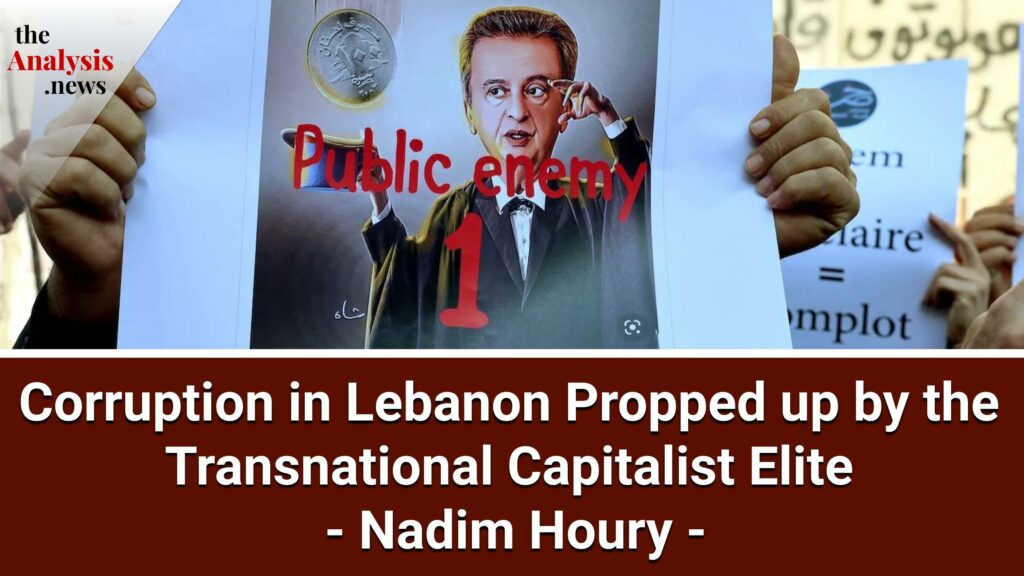
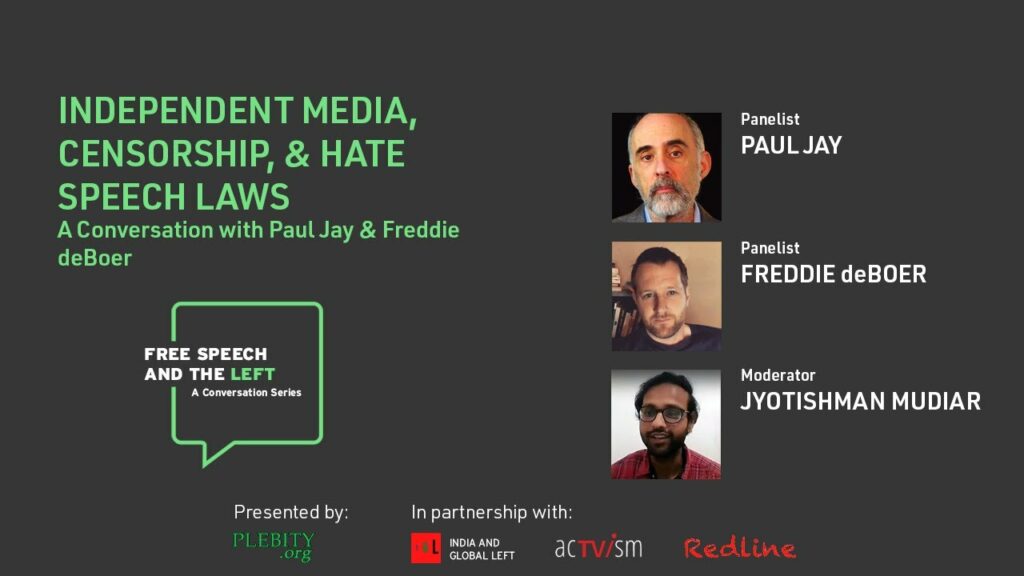

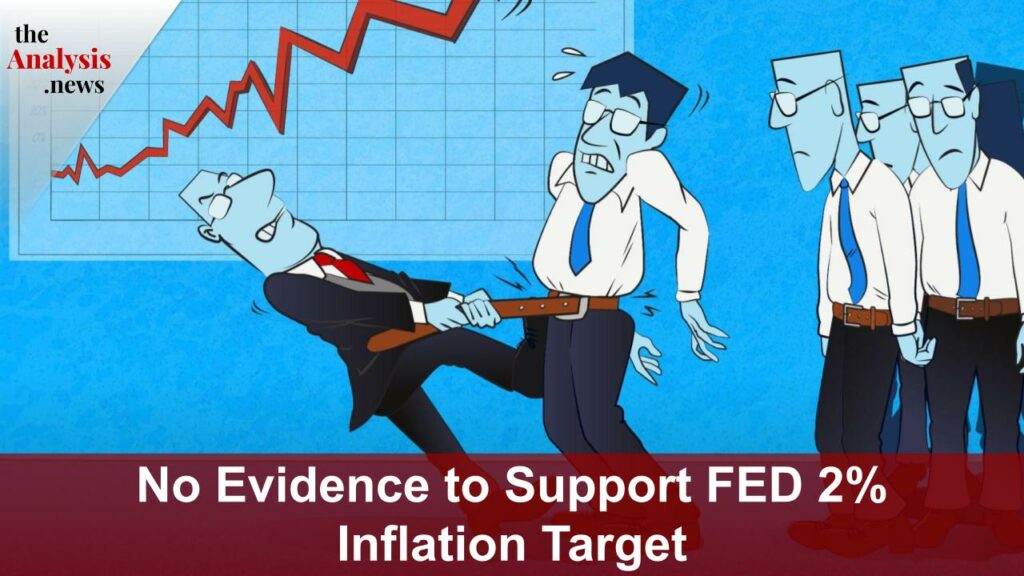
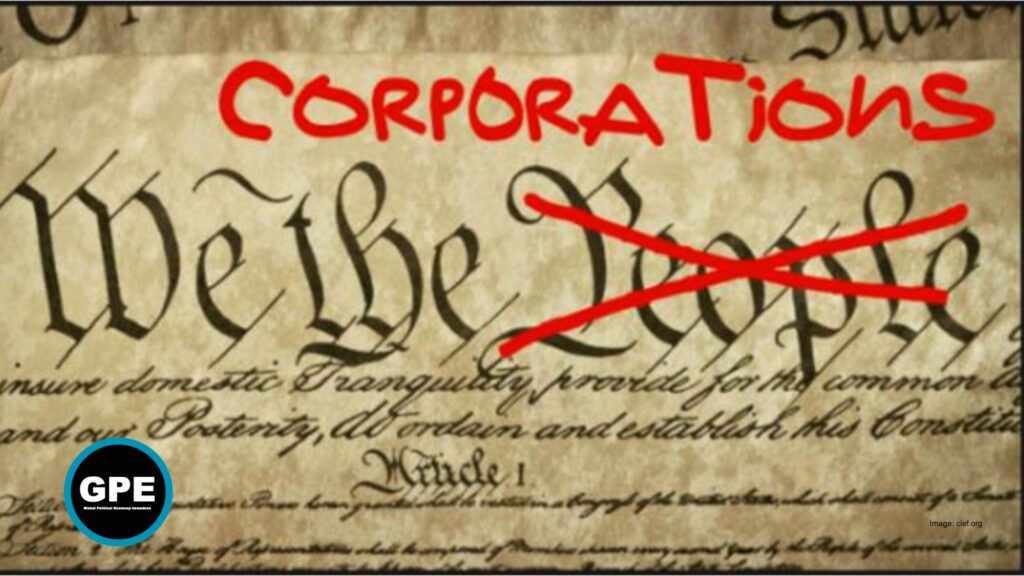
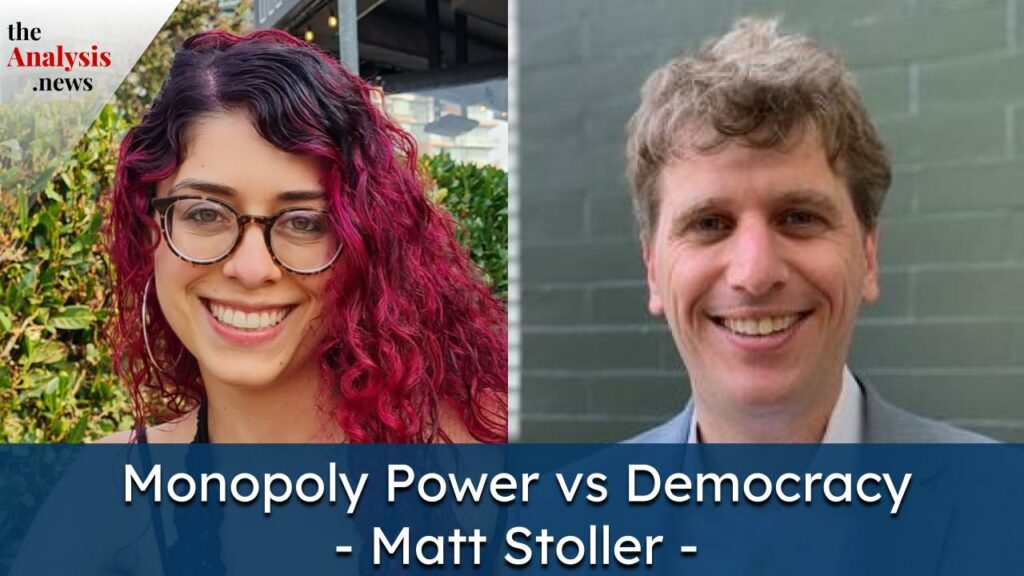
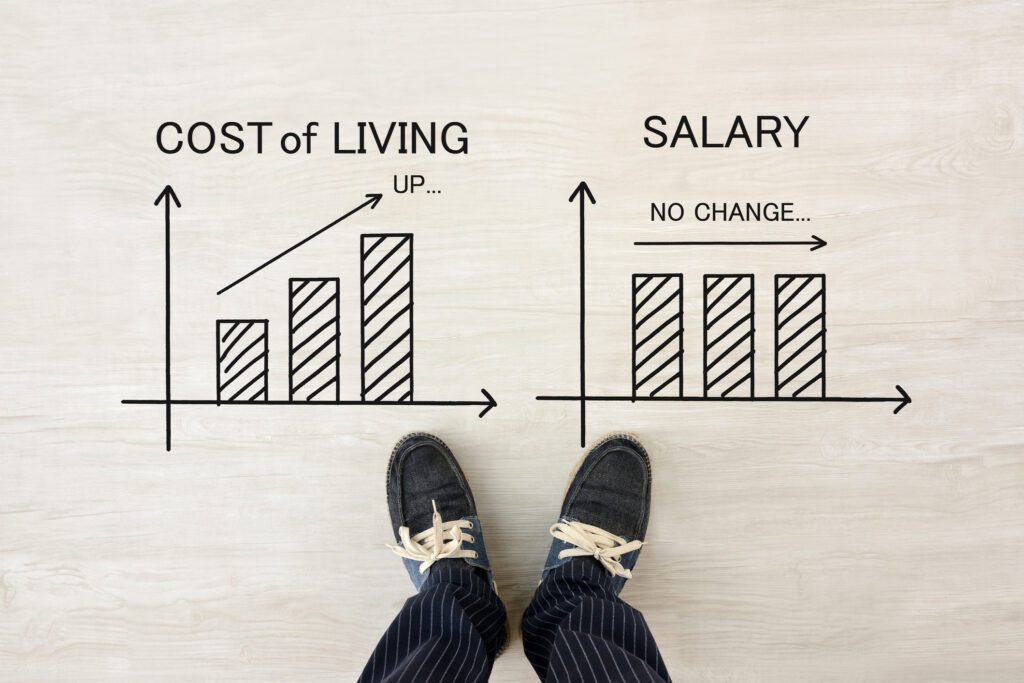
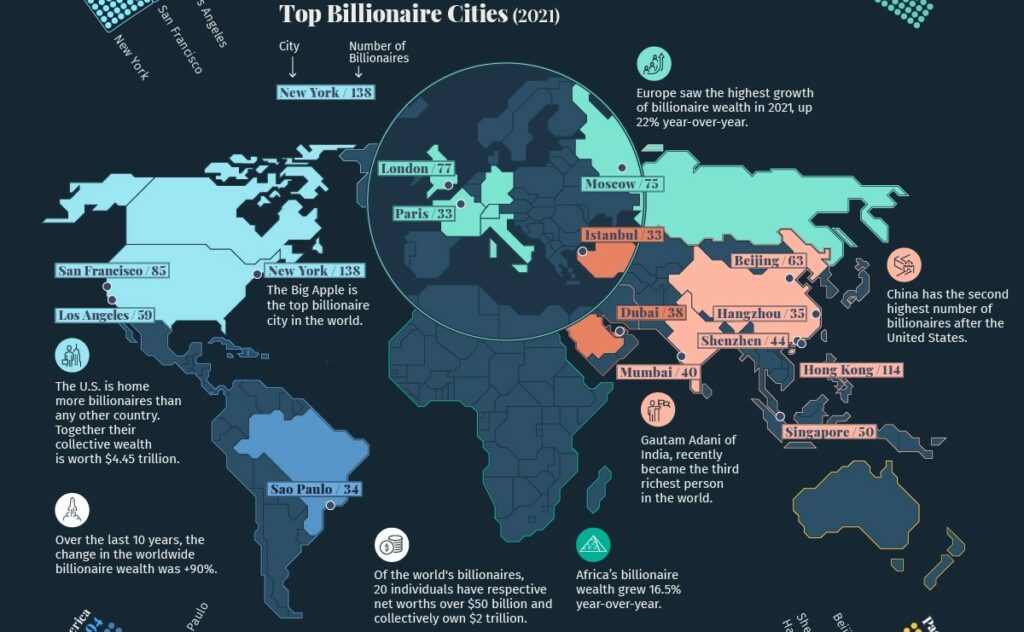
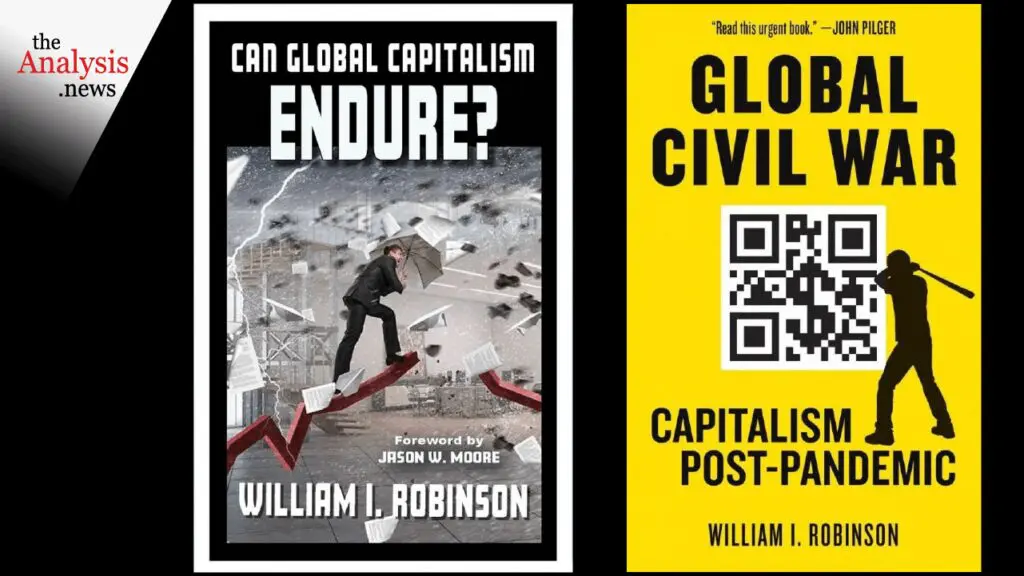
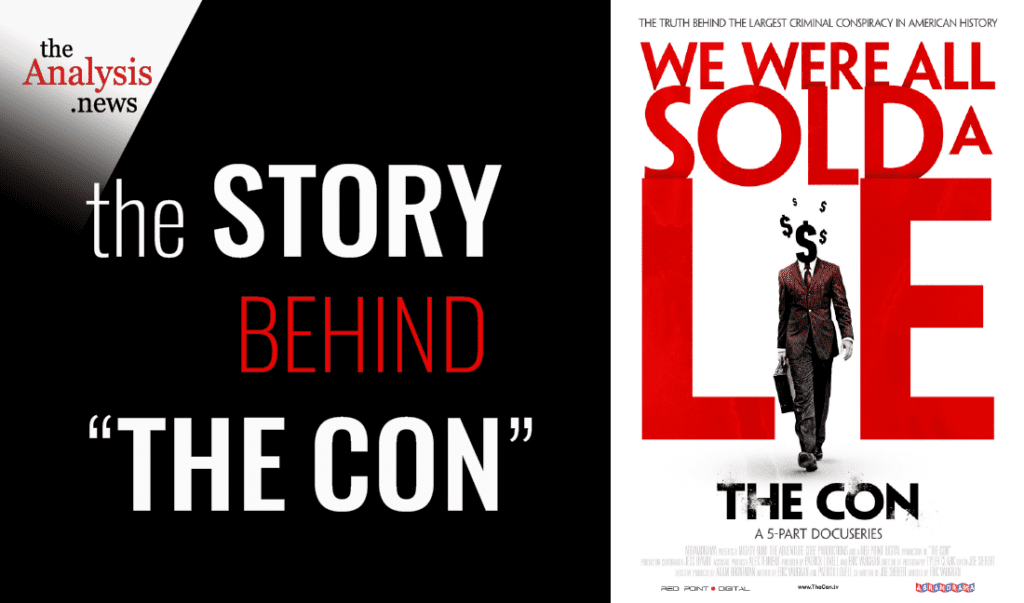
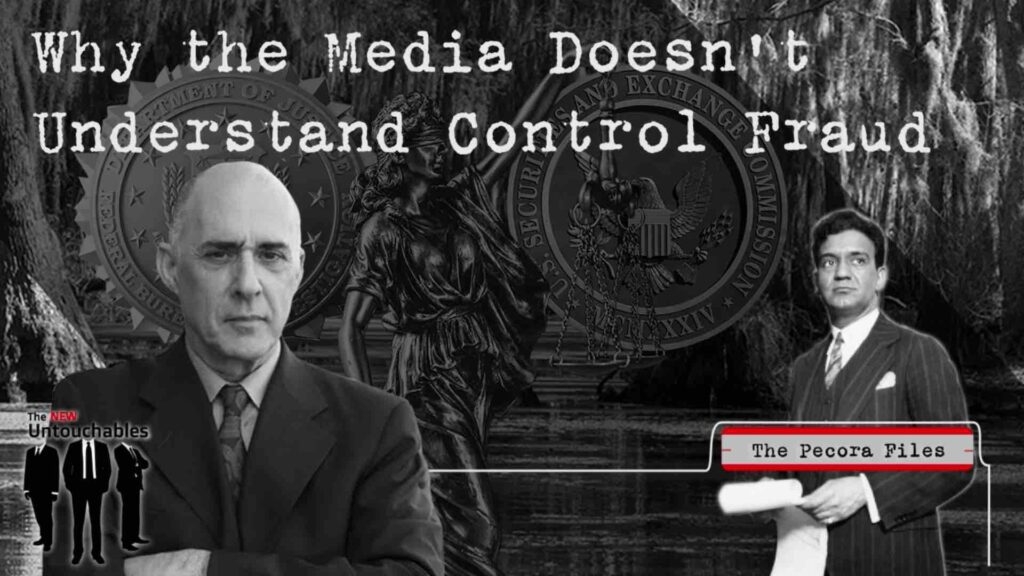
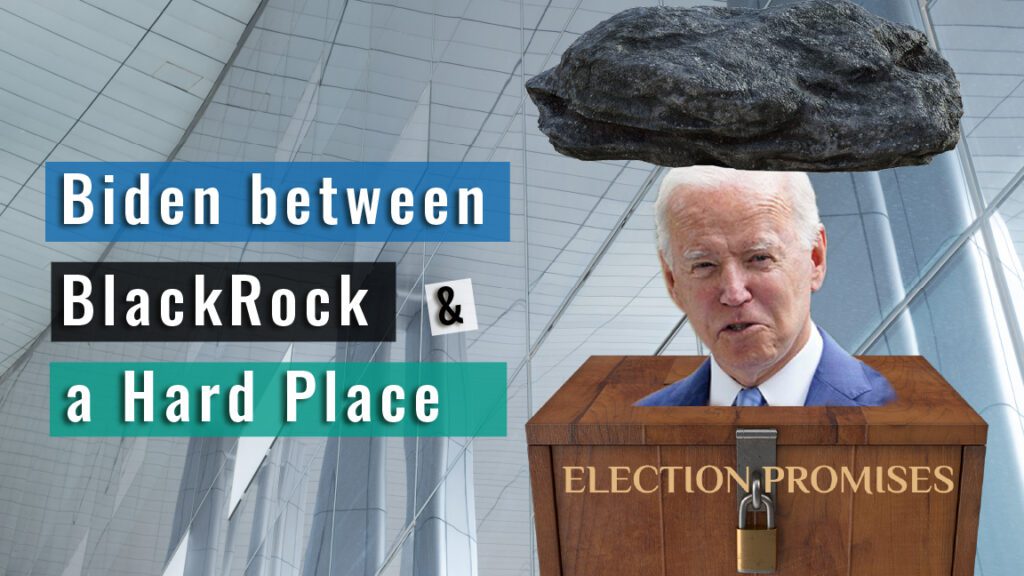
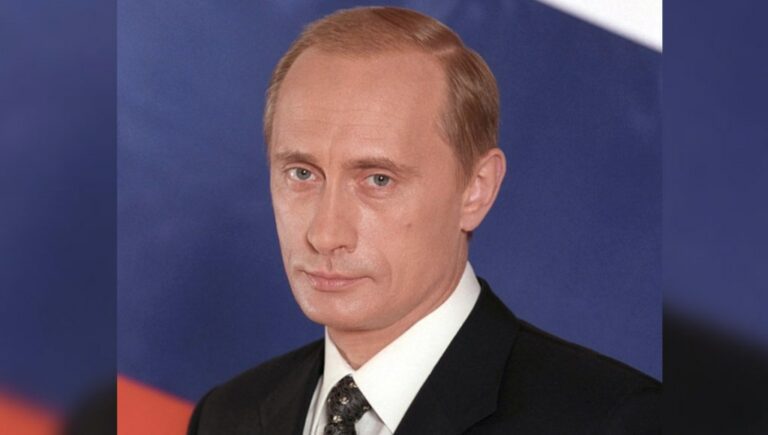

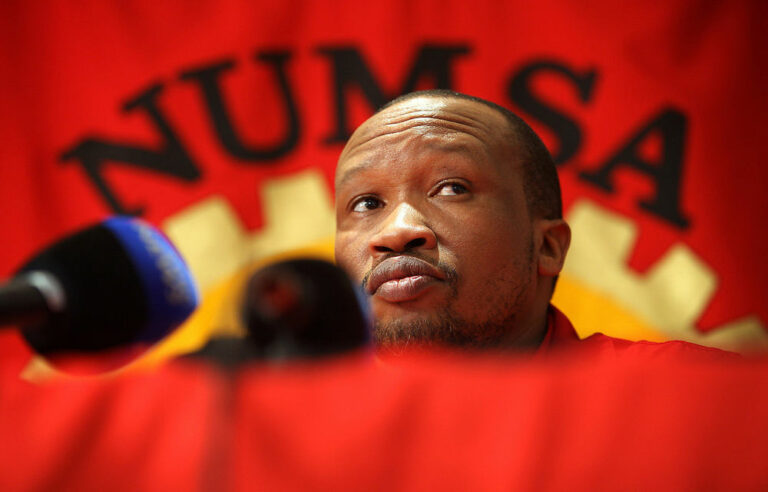
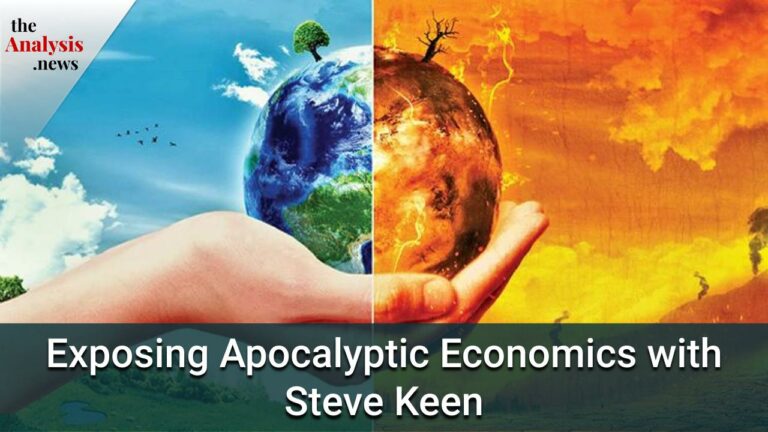
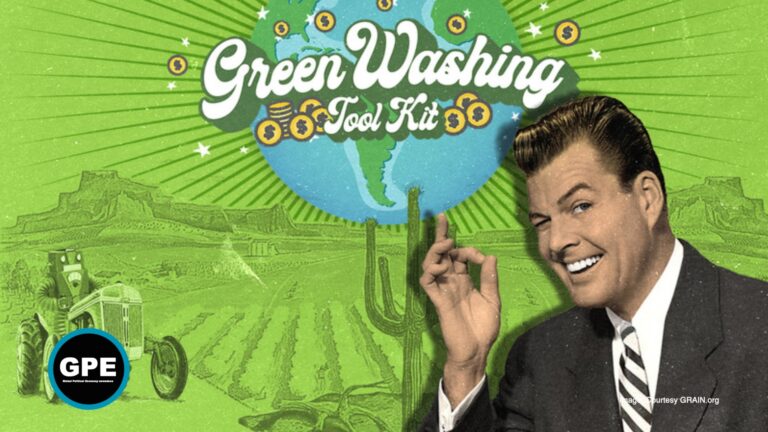
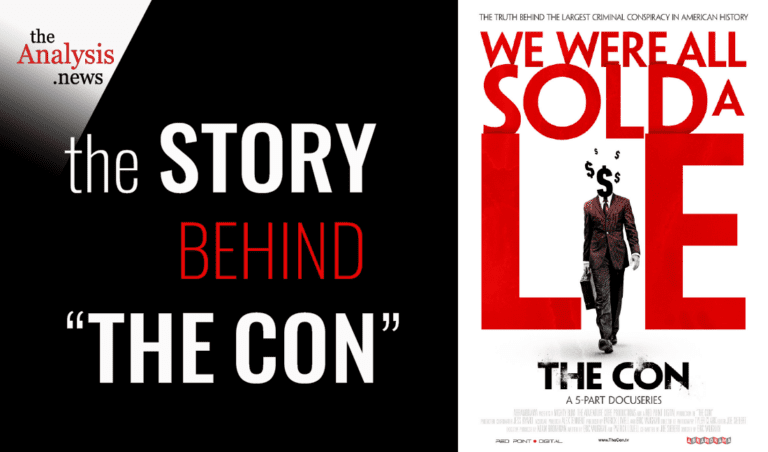
For lots of reasons this is an important interview. It’s right on, also. I follow inequality; for instance, the RealTime Inequality web page by U.C. Berkeley economists is an excellent page. The Fed’s Flow of Funds shows a ratio of “disposable personal income” to “household net worth” (wealth), Table B.101; this ratio peaked at 825% in Q1 2022; it was 467 in Jan. 2009; historically the ratio has held around 500%, roughly. As many know, the S&P 500 Index in December 2008 was 735, and it was 4567 in Sept. 2021 (since dropping to 4010). It increased by 6.2 times in 13 years. Wealth exploded, the economy limped, the quality of life suffered, but the wealthy levitated. I think if you visited the Credit Suisse Bank’s Global Wealth report it would show similar growth in total world wealth. I looked at the wealth pyramid in the last issue, 55% of the world’s adults own 1.5% of all wealth (all with net worth below $10,000, and the average for that 55% is $1,888, meaning many have virtually no wealth), the top 12% own 85% (I’m using my memory which is not perfect, but not that far off.) We have a problem in the distribution of resources and in the advancement of prosperity nationally and worldwide. It’s an enormous failure. We are heading collectively into a situation that Mexico experiences ongoing, it’s not pretty (they have a murder rate of 26/100,000, the U.S. has 6, the UK, Germany, have 0.9). Paul Jay’s question is important: “Is this model of capitalism even possible of creating a regulatory environment with some rationality? Because this concentration of economic power in the financial sector has given them such enormous political power. Who in Congress wants to take on the financial sector?” I forgot to mention that over 180,000 adults died this past year from “deaths of despair”. There are warning bells and sirens blaring. The problem is great, but the solution is fairly simple, obvious, but it will take a lot of education to convince people to tax wealth, regulate it, provide for higher incomes for all, look for standards that reflect real well-being and not the convenient misleading GDP data. Someone write a book, please. Rob, find a co-author.
Again – around min 36 and beyond the issue of money in politics as being at the core of failure to pass decent regs or enforce them is raised – pointing out the need to elect people who are not owned by big money – but that quite clearly leaves out Ds and Rs – if we haven’t figured that out by now …. this is not rocket science – it has been 12 years since CU was decided – and Congress (remember we are talking the duopoly here) says, “gee, we would like to be able to put limits on the money that can be spent on elections, but the SC says we can’t 🙁 ” So where is the move to pass a Const. Amend. to overturn CU – that says corps are nor people and money is not speech – with such an amendment they could legally put the brakes on – so why don’t they pass it – quite obviously because they don’t want to – they like all this dough thrown at them …. I think this interview made that rather explicit …
Back to putting honest people in Congress – if we can’t get them through the “major” parties, the 2 parties that have been running the show for decades – then we have to look outside the D/R structure – 3rd parties – the duopoly knows damn well that 3rd parties who offered clean candidates with good policy positions could win – that’s why they do their best to keep them off ballots with requirements for absurd numbers of signatures in short time spans, why they challenge signatures gotten and hire high powered firms to do so, why they keep them out of debates, why they starve them of whatever public funding there is with convoluted requirements for qualification …. anybody who can’t be bought scares the be-jesus out of them
Mr, Jay – I have heard several times now about how we need to put “good candidates” in office – why don’t you deal with this issue whereby good candidates are kept from running by the Duopoly whose members stand to gain from keeping “the competition” out – they are indeed a political mafia who has agreed to share the territory between them by rules they agree on that are mutually beneficial, who run protection rackets for various industries, bank, Phrma, weapons, etc. Matt Hoh was the most recent example of all these dirty tricks by the Dems when he ran for Senate as Green in NC – ask him about this stuff – he is the type of guy we need –
“Prog” Ds are basically window dressing for “the base” – they can make a lot of noise, but when push comes to shove, they cave – if they get too obstreperous they are “Kuciniched” – we won’t have a prayer of getting where we need to go if we keep electing D/Rs – if you do really want what you say, you really do need to deal with this issue …